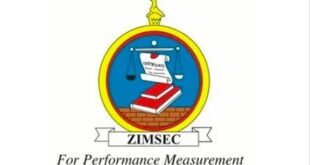The Competition and Tariff Commission (CTC) has launched an investigation into allegations that some schools are compelling parents to buy uniforms and textbooks from designated suppliers as a condition for enrolment.
In a notice published in the latest Government Gazette, the commission singled out Queen Elizabeth School, which is accused of forcing parents and guardians of Form One and Form Five learners to purchase uniforms and learning materials from two suppliers — Giplic Fashions (Scott Adams) and Gramsol Publishing.
According to the CTC, such practices may amount to restrictive and unfair trade conduct, as they limit parents’ freedom of choice while giving undue advantage to certain suppliers. The commission noted that this arrangement could effectively lock out other players in the market, raising concerns over exploitation of parents and compromised product quality.
“Preliminary concerns are that the alleged practice may restrict parents and learners’ choice of suppliers to only Giplic Fashions and Gramsol Publishing,” the notice stated. “If left unchecked, the practice could create barriers to entry for other suppliers and result in unfair advantage for the preferred companies.”
Parents have long raised complaints over the policy, particularly at boarding schools where admission is often tied to purchasing prescribed uniforms and stationery. Some guardians have argued that they are tailors who can produce uniforms themselves, while others say the chosen suppliers sometimes offer poor-quality products at high prices.
The CTC clarified that the opening of an investigation does not mean Queen Elizabeth School or its named suppliers have been found guilty of breaching competition law. Rather, the process is meant to determine whether the practices in question restrict competition or exploit parents.
Under Section 28 of the Competition Act [Chapter 14:28], the commission has the authority to examine any agreements, arrangements, or trading methods that may constitute restrictive practices, monopolies, or unfair business conduct. It also has powers equivalent to those granted under the Commissions of Inquiry Act.
As part of the probe, the CTC has invited stakeholders and members of the public to submit written representations within 14 days of the Gazette publication. Contributions can be sent via email or delivered in person to the commission’s offices in Harare.
“All submissions will be treated with strict confidentiality and used solely for the purposes of the investigation,” the commission said.
 Nhau News Online News that is accurate, reliable, trustworthy!!
Nhau News Online News that is accurate, reliable, trustworthy!!
